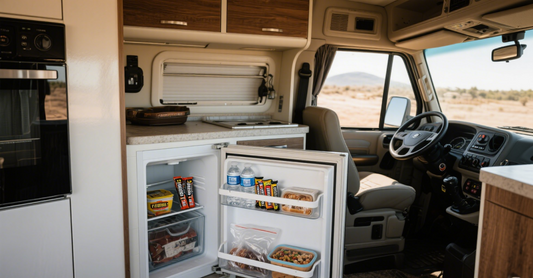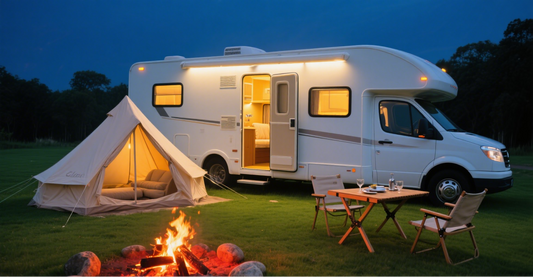How Much Are Lithium Golf Cart Batteries
Lithium golf cart batteries are increasingly popular among casual golfers, fleet operators, and community cart users for their maintenance-free, superior performance compared to traditional lead-acid batteries. From weekend golfers seeking reliable range to fleet managers needing durable solutions, lithium batteries cater to diverse needs.
This article explores the price range of lithium golf cart batteries, key factors influencing costs, and practical guidance to help you choose the right battery type for long-term value and energy efficiency.


Why Choose Lithium Golf Cart Batteries?
Lithium batteries, particularly lithium iron phosphate (LiFePO4 batteries), outperform traditional lead-acid options, delivering a longer lifespan of 4,000-5,000 cycles compared to 500-1,000 cycles for lead-acid batteries, ideal for frequent users.
Their lightweight design 50-70% lighter, boosts cart acceleration and range. These maintenance-free batteries eliminate watering or corrosion checks, unlike lead-acid golf cart batteries.
Lithium-ion batteries, with their built-in battery management system (BMS), provide comprehensive, real-time monitoring and protection of battery usage, and they operate reliably even in extreme temperatures.
Furthermore, LiFePO4 batteries utilize recyclable materials, are more energy efficient, and are environmentally friendly, reducing replacement costs and environmental impact. These advantages make lithium-ion batteries a wise choice for modern golf carts.
Cost Range of Lithium Golf Cart Batteries
The cost of lithium golf cart batteries depends on voltage, capacity, and brand. Below are updated 2025 price ranges for common golf cart systems:
- 36 Volt Kits: $700-$1,200, ideal for older or budget-friendly carts with lower power demands, using fewer cells to reduce costs.
- 48V Lithium Kits: $1,000-$2,500, the standard for carts like Club Car, EZGO, and Yamaha, often with Bluetooth monitoring or integrated chargers.
- 72V High-Performance Kits: $2,000-$4,000, built for lifted carts, hunting buggies, or high-speed street conversions needing robust power.
These prices reflect complete kits, including a battery management system (BMS) for safety and performance. Higher capacity (e.g., 210Ah vs. 100Ah) can increase costs by 20-30% but extends range for demanding.
Factors Affecting Lithium Battery Prices
Battery Type and Chemistry
LiFePO4 batteries, the most cost-effective lithium-ion battery type, offer high energy density, safety, and resistance to extreme temperatures, making them best for golf carts.
Capacity and Size
Higher amp-hour (Ah) ratings (e.g., 105Ah vs. 210Ah) raise costs due to more cells. For example, a 48V 210Ah pack averages $3,500-$4,500, while a 105Ah pack costs around $2,500. Larger batteries may require custom trays, increasing labor costs.
Brand and Quality
Premium brands like Trojan or TemgoBattery provide 5-10 year warranties, increasing costs.
Additional Components
Compatible chargers ($200-$400), custom mounting brackets, or wiring add to expenses.
Market Trends
Lithium prices may vary due to supply chain or raw material costs (e.g., lithium, cobalt), affecting affordability.
Comparing Lithium vs. Lead-Acid Batteries
| Battery Type | Cost (48V System) | Lifespan (Cycles) | Weight | Maintenance |
|---|---|---|---|---|
| Lithium (LiFePO4) | $1,000–$2,500 | 3,000–5,000 | 50–70% lighter | Maintenance free |
| Lead-Acid | $800–$1,500 | 500–1,000 | Heavier | Regular watering, corrosion checks |
Compared to lead acid, lithium batteries cost more upfront but save significantly long term. A $2,500 lithium battery with a 10-year lifespan avoids multiple lead-acid replacements ($1,200 every 3-5 years), saving $1,600-$3,000 over a decade.
Their energy efficiency ensures consistent power output even at low charge levels, and lighter weight improves performance on hilly courses.
Most Affordable and Longest-Lasting Lithium Options
For budget-conscious
LiFePO4 batteries, a cost-effective battery type, offer excellent energy density, durability, and resistance to extreme temperatures, ideal for standard carts. Brands like Temgo Battery provide 51.2V 100Ah packs for $1,000-$2,500, perfect for casual golfers.
For life-span
Premium options like the Temgo 48V battery offer a longer lifespan of 3,000-5,000 cycles with 5-year warranties, ideal for fleet operators or high-performance carts. Their robust battery management systems (BMS) prevent overcharging and overheating, ensuring safety and durability.
Additional Costs and Considerations When Purchasing Lithium Golf Cart Batteries
- Charger Compatibility: Lithium batteries need specific chargers ($200-$400 if not included). Incompatible chargers can damage the battery.
- Installation Costs: Professional installation costs $200-$500, depending on cart complexity. DIY setups may need custom brackets or wiring.
- Safety Features: A reliable battery management system (BMS) prevents overcharging, overheating, or thermal runaway, especially in extreme temperatures. Choose UL or CE-certified batteries for safety.
- Disposal Fees: Lead-acid battery disposal fees range from $20-$50 per battery, while lithium batteries are recyclable, reducing environmental costs.
- Where to Buy: Purchase from authorized dealers or trusted platforms like Amazon or manufacturer websites for quality and warranty support.
Are Golf Cart Lithium Batteries Worth the Investment?
Investing in lithium golf cart batteries involves a higher upfront cost, typically $2,200-$4,000 for a 48V system, compared to $800-$1,500 for lead-acid. However, their long-term benefits outweigh this expense.
Over 10 years, a lithium battery's longer lifespan (3,000-5,000 cycles) eliminates 2-3 lead-acid replacements, saving $1,600-$3,000.
Lithium batteries require no maintenance, charge faster (3-4 hours), and deliver consistent power, ideal for high-performance cart owners tackling steep terrains.
Their eco-friendly design, with recyclable materials and higher energy efficiency, appeals to environmentally conscious buyers. Casual users with older carts may find the investment less critical unless prioritizing long-term savings.
Conclusion
When choosing a lithium golf cart battery, match the voltage (36V, 48V, or 72V) to your cart's system and evaluate your usage.
LiFePO4 batteries offer affordability and reliability, while premium brands like Temgobattery ensure longevity for demanding applications. Verify robust battery management systems (BMS), warranties (5-10 years), and cart compatibility. Purchase from trusted retailers for quality and support.
For a balanced option, choose Temgo Battery. Our LiFePO4 golf cart batteries deliver energy efficiency and a maintenance-free design, with prices starting at $500-$1,500 for 36V system lithium batteries and $1,000-$2,500 for 48V system lithium batteries.
Designed for seamless integration with EZGO, Club Car, and Yamaha carts, Temgo offers 5-year warranties, IP67 and IP65 waterproofing, and Bluetooth monitoring for real-time performance tracking via a mobile app.
Users praise Temgo for easy installation and reliable power in Club Car carts, with a 200A BMS ensuring safety on rugged courses.


